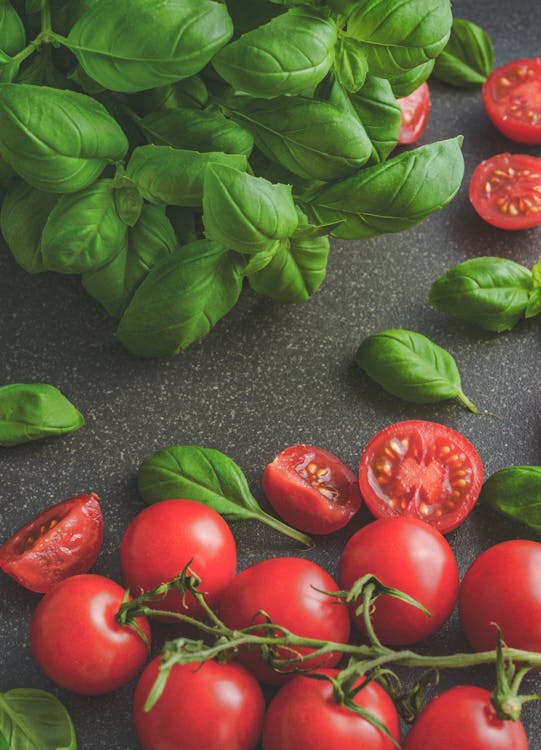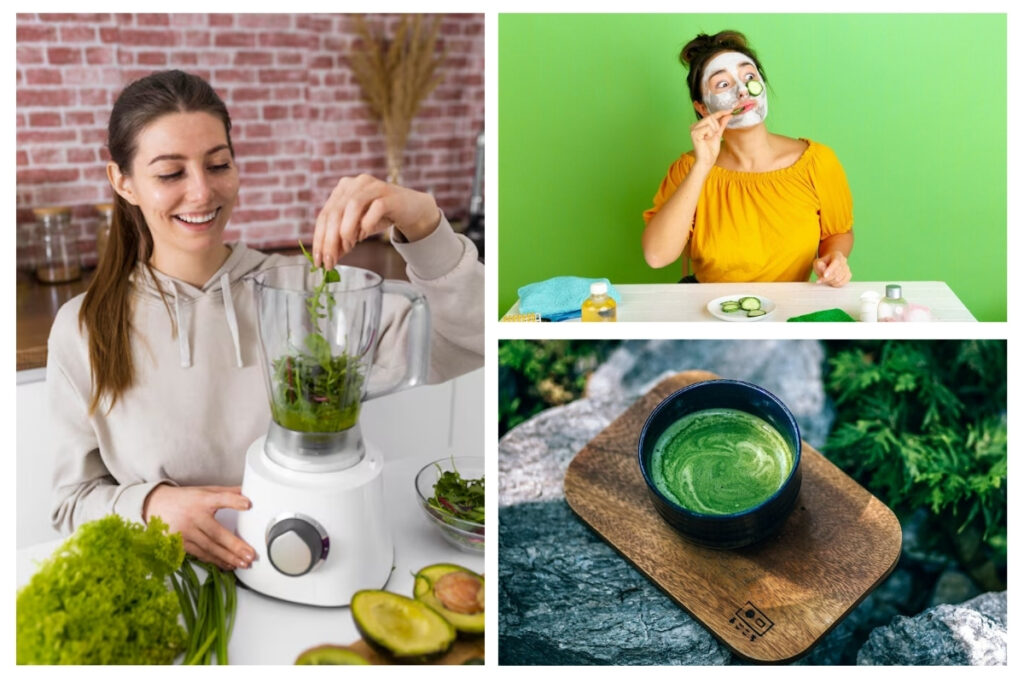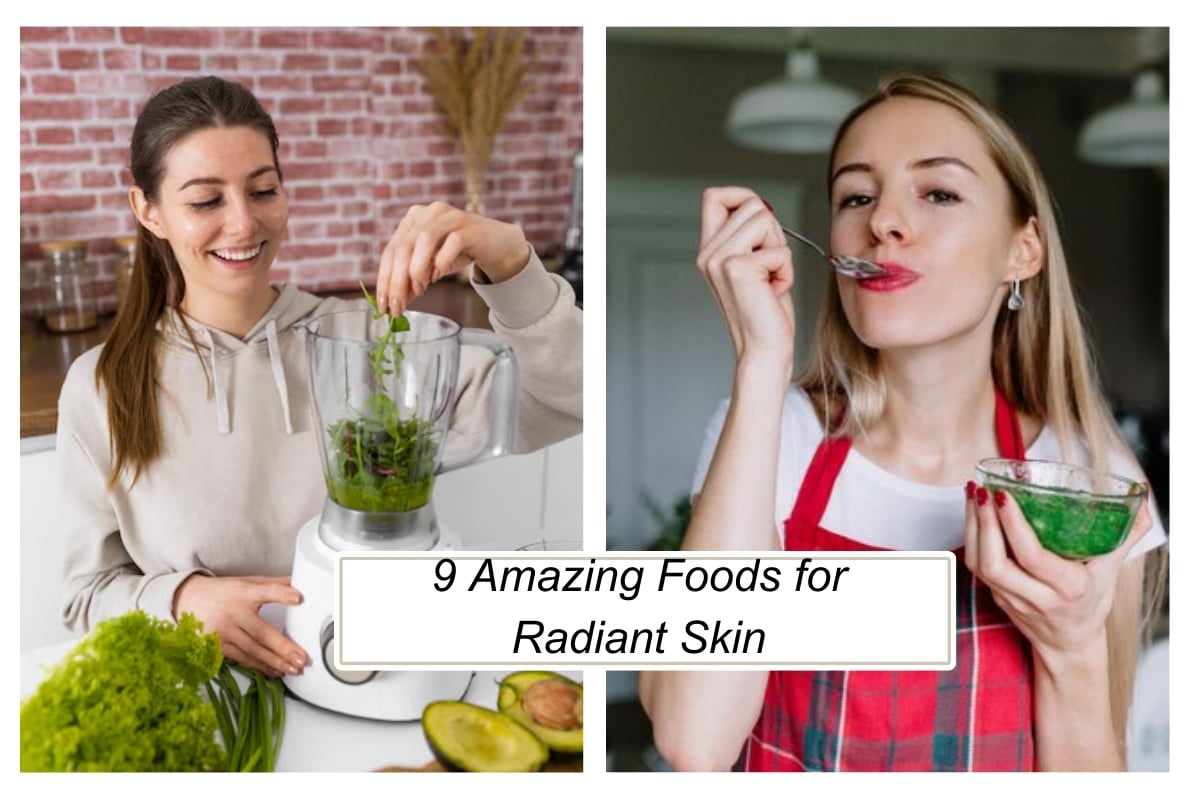9 Amazing Foods for Radiant Skin
6. Spinach – The Leafy Green Wonder
Nutritional Profile
Spinach is a nutrient-dense leafy green, rich in vitamins A, C, E, and K, as well as folate, iron, and antioxidants.

Advertisement
Benefits for Skin
- Hydration: Spinach is high in water content, helping to keep your skin hydrated.
- Detoxification: The antioxidants in spinach help to detoxify the body and improve skin clarity.
- Anti-Inflammatory: Spinach can help reduce redness and irritation, making it beneficial for acne-prone skin.

Advertisement
How to Incorporate Spinach?
Add fresh spinach to salads, smoothies, or omelets. You can also sauté it as a side dish or incorporate it into soups and stews.

Advertisement
7. Tomatoes – The Lycopene Lover
Nutritional Profile
Tomatoes are rich in lycopene, an antioxidant that gives them their vibrant red color, along with vitamins C and K.

Benefits for Skin
- Sun Protection: Lycopene helps protect the skin from UV damage and sunburn.
- Collagen Production: Vitamin C supports collagen production, enhancing skin elasticity and firmness.
- Hydration: Tomatoes have high water content, contributing to skin hydration.

Advertisement
How to Incorporate Tomatoes?
Enjoy fresh tomatoes in salads, make a homemade marinara sauce, or roast them for a flavorful addition to various dishes.

8. Green Tea – The Hydrating Brew
Nutritional Profile
Green tea is rich in polyphenols, particularly epigallocatechin gallate (EGCG), which has powerful antioxidant properties.

Advertisement
Benefits for Skin
- Anti-Aging: The antioxidants in green tea help fight free radicals and reduce signs of aging.
- Anti-inflammatory: Green tea can help calm irritated skin and reduce redness.
- Sun Protection: Some studies suggest that green tea may offer a level of protection against UV damage.

Advertisement
How to Incorporate Green Tea?
Drink green tea regularly, or use it as a base for smoothies. You can also use cooled green tea bags as a soothing eye treatment.

Advertisement

